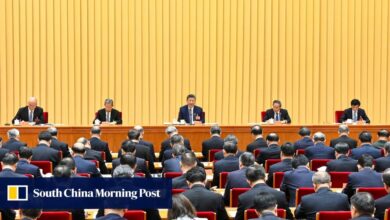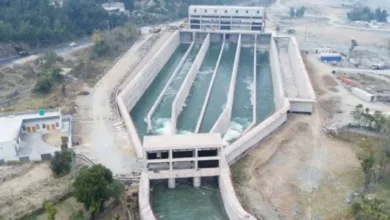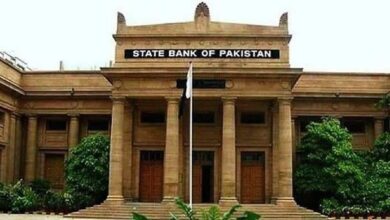The Cost of Control | Pakistan Today

The growing influence of technology on modern life has sparked a transformation across the globe, yet the social and economic implications of these changes are far from uniform. While the digital era has introduced remarkable conveniences, it has also reshaped traditional structures, bringing forth challenges that vary significantly by region. In Pakistan, for instance, internet outages, digital censorship, and VPN issues have increasingly become points of contention, especially as authorities justify these measures under the guise of national security. This development underscores a more profound dilemma— how far should governments go to regulate digital access in the name of security, and at what cost to personal freedoms, economic growth, and societal progress?
Globally, the internet has revolutionized everything from education to commerce to social interaction. In democratic societies, where free access to information is seen as a fundamental right, the imposition of restrictions or surveillance measures can quickly raise concerns. The rise of social media and the ubiquity of digital communications have both democratized information and, paradoxically, made it easier for authoritarian regimes to control and monitor dissent.
As countries like Pakistan grapple with the balance between security and digital freedom, it is crucial that they consider the long-term consequences of these decisions on their people, economies, and global standing. The rising tide of digital surveillance and censorship may very well be one of the defining challenges of the digital age, but its effects on human rights, freedom of expression, and economic growth cannot be ignored
In countries like Pakistan, where security concerns are often cited, internet censorship has become increasingly pervasive, with recent months seeing significant outages linked to political unrest and social movements. The most notable example is the government’s decision to block platforms like X (formerly Twitter), which were used by political groups, raising alarms about the potential for long-term damage to Pakistan’s digital landscape.
Pakistan’s reliance on the internet for economic activity, education, and political discourse has made these disruptions particularly damaging. The tech sector, for instance, has faced devastating financial losses. According to the Pakistan Software Houses Association (P@SHA), the recent internet issues and the implementation of a national firewall could cost the economy upwards of $300 million, with more losses expected if the situation persists. Such disruptions have also led to increased VPN usage as citizens and businesses seek ways to bypass restrictions. However, this has been met with further government scrutiny, including plans to regulate VPNs, citing concerns over their role in facilitating circumvention of restrictions.
Beyond economic concerns, these restrictions have raised serious questions about the right to digital freedom. In many countries, especially authoritarian regimes like Iran and China, such digital controls have been part of a broader strategy to monitor citizens and suppress dissent. While Pakistan has yet to officially adopt such extreme measures, the emergence of a “national firewall”— a strategy to filter and block online content— indicates a potential shift toward stricter controls. Although the government has denied implementing such a system, many experts believe these tactics are already in place, with social media platforms regularly targeted during periods of heightened political tension. The growing use of VPNs to circumvent these measures reflects not only a demand for free information but also a growing resistance to authoritarian control.
What is concerning is the way these actions not only curtail political freedoms but also disrupt the everyday lives of ordinary citizens. In Pakistan, the digital divide is widening, with rural areas and lower-income communities facing even greater challenges in accessing basic services, including healthcare and education. For the middle class, the inability to access social media platforms or international news outlets can isolate them from important global events. This erosion of access undermines Pakistan’s attempts to position itself as a competitive global player in the digital economy.
Globally, digital inequality has similarly undermined the social fabric in various nations. In many developing countries, including parts of Africa and Asia, access to the internet is still limited, often due to infrastructural deficits or governmental control. These disparities in access hinder development and exacerbate existing social and economic inequalities. In contrast, regions with greater internet penetration have seen improvements in education, healthcare, and commerce, providing new opportunities for growth and innovation. However, the cost of digital surveillance, online censorship, and internet disruptions, as seen in Pakistan and other nations, must be considered as part of a global conversation on the ethics of digital governance.
The implications of internet regulation in Pakistan are profound. Authorities claim that these measures are necessary to ensure national security, but the impact on economic activities and digital freedoms raises pressing questions. The efforts to block or limit access to certain platforms have damaged Pakistan’s standing in the global digital economy. For instance, as more businesses turn to VPNs to maintain operations amid restrictions, the performance of these services has dropped significantly.
Pakistan’s reliance on VPNs has created a paradox in which the state seeks to restrict digital access, while citizens rely on these tools to circumvent these barriers. These contradictions expose the struggle between controlling information for security and fostering an open, innovative digital ecosystem that can drive long-term economic success.
Ultimately, the debate around digital freedom versus national security will need to be addressed not just in Pakistan but globally. While the internet can be a tool for great progress, its power to disrupt and challenge political and economic norms cannot be underestimated.
As countries like Pakistan grapple with the balance between security and digital freedom, it is crucial that they consider the long-term consequences of these decisions on their people, economies, and global standing. The rising tide of digital surveillance and censorship may very well be one of the defining challenges of the digital age, but its effects on human rights, freedom of expression, and economic growth cannot be ignored.
Source link



